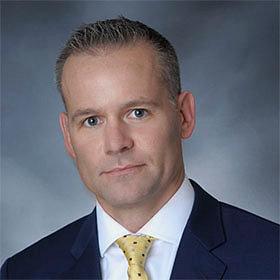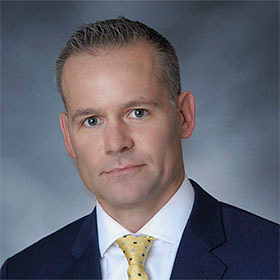Last week’s show was with Wayne Jenkins, MD, from Centivo; and we talked about how insurance design, when not done well, can lead, in a nutshell, to mental and physical health problems for employees. This is a great lead-in to the conversation in this healthcare podcast with Dan O’Neill. And before I get into why it’s a great lead-in, let me just start here—and don’t roll your eyes.
What is value-based care? Consider this delineation: There’s value-based payments, and then there’s the type of care that these payments incentivize. You would hope that a value-based payment would result in care that was of value (ie, great patient outcomes and patient satisfaction at a fair total cost of care). But those are two distinct things—the payment and the care.
If we change the payment model but the provider behavior doesn’t change in a way that actually improves patient outcomes and care, then what are we doing here?
Or the converse: If we do not change the payment model, then how does anyone expect the care paid for is going to change? Employers or carriers who just meander along with the broad PPO network happily paying as much for low-value care as for high-value care and happily paying centers of excellence as much as non–centers of excellence … how is a provider who wants to spend time and money building out a practice to deliver better patient outcomes, how can they do that without overcoming some pretty fundamental business model challenges?
This whole concept is one that my guest today, Dan O’Neill, has talked about and will talk about in this episode. Dan says the first step is for insurers, IPAs, managed care organizations to take an absolute chainsaw to their network management bureaucracy. There must be a clear door to a value-based payment model. It must be that if you’re a provider or you’re a physician practice (primary care practice, in particular), and you want to go down a value-based care path, there has to be a clear door and a pathway for you.
I think I have a non-perfect litmus test for anybody with a value-based payment program who wants a heuristic to check if their value-based payment program is actually meaningfully impacting models of care in the marketplace: If most of the provider organizations who are part of that value-based program still incentivize and pay their doctors using FFS incentives like RVUs (relative value units), I’d step back and think about that for a piece. Contemplate that doctors, who are responsible for care decisions, still have every incentive to do everything that they would have done had the provider organization just been paid FFS. What’s the point of value-based payments that extract exactly zero behavior change? And that is not a rhetorical question.
So, back to the conversation from last week with Dr. Wayne Jenkins citing all of the things that can go horribly wrong when an employer’s benefit designs are misaligned with the financial realities of their workforce. You get what you pay for, and I don’t just mean that in terms of the dollars outlaid, since we all know in healthcare prices and quality have nothing to do with each other—I mean, in terms of what you choose to pay for and how you choose to pay for it.
That’s the macro of this whole thing, but indulge me as I get into the micro for just one sec. Let me just remind everybody about Goodhart’s Law: “When a measure becomes a target, it ceases to be a good measure.” More on the why of this in the interview with Rishi Wadhera, MD, MPP, on the hospital readmission reduction program (EP326) and also what happens when we don’t adhere to Goodhart’s Law as we evaluate PCPs, which Rebecca Etz, PhD, talks about in EP295.
In this episode with Dan O’Neill, we go through where we’re at on the continuum of value-based payments and how those payments are impacting the care, value-based or otherwise, that is incentivized by those payments. We tick through four gradations of value-based payments:
- A pure volume contract (otherwise known as FFS [fee for service])
- A clinician bonus for achieving quality measures
- A piece of the savings (ie, MSSP [Medicare Shared Savings Program])
- Global risk
My guest, Dan O’Neill, is chief commercial officer over at Pine Park Health. Besides over a decade in healthcare tech and services, he was a policy fellow at the National Academy of Medicine and worked in the Senate on the Senate Health Committee.
You can learn more at dponeill.com or connect with Dan on LinkedIn.
 Daniel O’Neill, MA, MS, currently serves as chief commercial officer for Pine Park Health, a value-based primary care group that delivers on-site care in senior living communities. Prior to that, Dan was a health policy fellow at the National Academy of Medicine, working primarily in the US Senate on legislation focused on surprise billing, anti-competitive contracting practices in the commercial market, and price transparency. Dan has also worked as a senior vice president with Change Healthcare and as an advisor to venture-stage healthcare services and technology firms. At Pine Park, Dan is responsible for risk-based contracting with IPAs and insurers and for the group’s participation in CMS value-based care models, including direct contracting. Dan’s research is available in NEJM Catalyst and on the Health Affairs blog, and he holds graduate degrees from Johns Hopkins University and Stanford University.
Daniel O’Neill, MA, MS, currently serves as chief commercial officer for Pine Park Health, a value-based primary care group that delivers on-site care in senior living communities. Prior to that, Dan was a health policy fellow at the National Academy of Medicine, working primarily in the US Senate on legislation focused on surprise billing, anti-competitive contracting practices in the commercial market, and price transparency. Dan has also worked as a senior vice president with Change Healthcare and as an advisor to venture-stage healthcare services and technology firms. At Pine Park, Dan is responsible for risk-based contracting with IPAs and insurers and for the group’s participation in CMS value-based care models, including direct contracting. Dan’s research is available in NEJM Catalyst and on the Health Affairs blog, and he holds graduate degrees from Johns Hopkins University and Stanford University.
05:06 What is the spectrum of value-based contracts?
07:24 Why don’t value-based contracts at the organizational level always trickle down to the provider level?
11:25 What are the two things that need to happen to drive outcomes in value-based healthcare?
15:24 How do insurers play into improving value-based contracts?
19:46 “There’s a strong case to actually clamp down on prices.”
23:47 “Right now, we’re still in a place where if you want to do something other than fee for service … you have to fight like hell.”
24:03 What’s the first step to making value-based contracts more accessible?
24:27 What’s the second step to making value-based contracts accessible?
25:23 Why are the incentives to change American healthcare pretty weak?
27:10 “Organizational change is just exceedingly difficult.”
28:45 What should you do if you want to start pushing organizations toward value-based contracts?
32:42 EP351 with Eric Bricker, MD.




